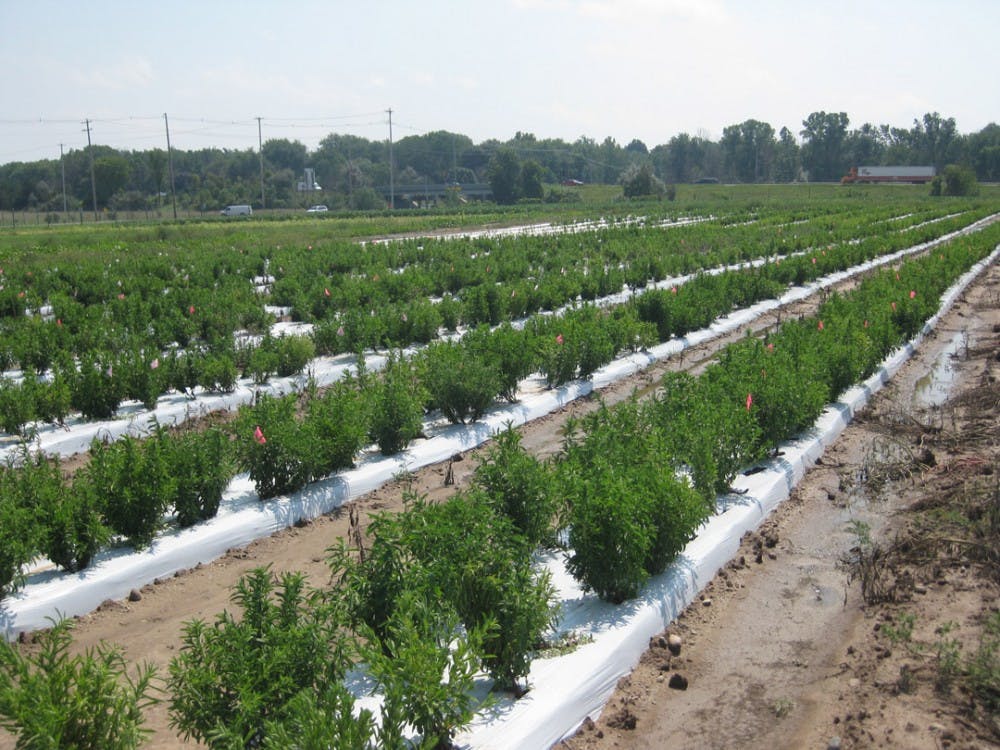Ryan Warner, associate professor and chair of the Plant Sciences Recruiting Committee of the department of horticulture at MSU, has been researching stevia plants in his lab since 2010. Recently, MSU and Warner’s team received a grant of $3.2 million to fund their ongoing research of the sugar-replacement plant.
Since his research began, Warner has been trying to find a way to make the taste profile of stevia more appealing to American consumers. In an email, Warner explained that there has been increasing interest in stevia production over the last five years.
Warner’s team consists of 10 investigators from four universities. Collaborators at MSU include Sungeun Cho, assistant professor for the department of food science and human nutrition; Bridget Behe, professor at the department of horticulture; Randy Beaudry professor at the department of horticulture; and Kevin Childs assistant at the department of plant biology.
The team also includes colleagues at North Carolina State University, Alabama A&M University and Fort Valley State University.
Warner’s past research has focused on particular steviol glycosides, which are the compounds producing different tastes in stevia products. Rebaudioside A is the most common steviol glycoside, and is used in many of the products on the market today.
Rebaudioside A is also the compound that produces the bitter aftertaste consumers associate with stevia sweeteners, Warner explained.
Warner’s lab has developed new varieties of stevia, rebaudioside D and rebaudioside M, which reduce the bitterness found in products sweetened with rebaudioside A.
“From a utilization standpoint, understanding the flavor profile that is most desirable for consumers, and generating foundational genetic and genomic resources for the crop, will help us to breed new varieties of stevia that produce the compounds most desired by consumers,” Warner said in an email.
With the new grant money, Warner’s team will also research how to improve crop yield in America.
“Stevia is a relatively new crop, really only having been produced beginning in Japan in the 1970s, " Warner said "So, while there is currently quite a bit of interest in stevia, until recently, there has not been much research. It is our hope that this research will help to establish stevia as a viable crop for U.S. farmers, and will provide them with information they need to be successful in growing the crop.”
Collaborators at MSU will be researching combinations of steviol glycosides, consumer purchasing decisions for stevia-containing products, steviol glycoside concentrations in plants grown under different conditions and different locations, and developing resources for future researchers to understand breeding and biology of the stevia plant.
Compound concentrations in stevia plants is one of the biggest challenges Warner expects to face.
“The compounds that we think will be preferred by consumers are produced in much lower concentrations than the compounds that are currently commercially utilized,” Warner said.
According to Warner, research is set to last four years, although some aspects are long-term projects.
Support student media!
Please consider donating to The State News and help fund the future of journalism.
Discussion
Share and discuss “MSU receives $3.2 million grant to fund research on stevia plants” on social media.





